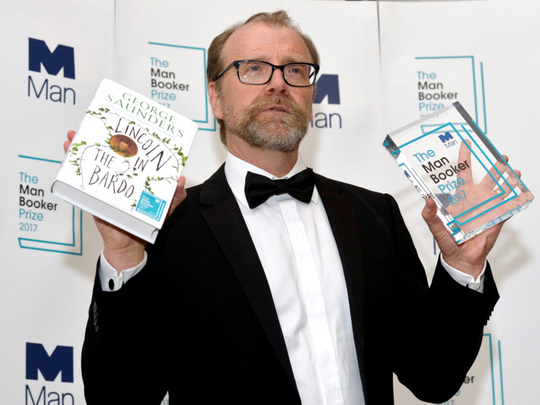
The upstairs room of an indie bookstore. A book launch for a local author. Crisps and beverages are being handed out, a buzz is in the air, congratulations are showered upon the young writer. I know — because I worked there at the launch of Eleanor Catton’s The Luminaries.
When Catton won the 2013 Man Booker prize, people in the bookstore were crying. Looking back on that day, the store’s manager said: “I don’t watch rugby, but I did think, maybe this is what it’s like when we win the World Cup?”
And it was. You couldn’t go to a Christmas party in Auckland that year without having a conversation about it.
The 2013 Booker put New Zealand literature on the map internationally, but perhaps more importantly, it revitalised its relevance for locals. This is what the Booker can do, used to do, and should still be doing for global English literature.
And it’s what this year’s shortlist — an even split between United States and United Kingdom authors — did not do. This doesn’t come as a surprise — it’s the inevitable result of the rule change made in 2014, opening up the prize to American authors. There were criticisms at the time that this would “Americanise the prize”. Now those fears have been realised. Two of the Americans on this year’s list, Paul Auster and George Saunders, are extremely well established. I was pleased for Emily Fridlund, an American debut novelist, and there were two British writers: the previously shortlisted Ali Smith and another debut author, Fiona Mozley.
The one exception in this Anglo-American line-up was Mohsin Hamid, a dual citizen of Pakistan and the UK, whose previous work, The Reluctant Fundamentalist, sold a million copies worldwide, was shortlisted for the 2007 Booker, and named a book of the decade by the Guardian.
Hamid studied at Princeton and Harvard, and spent part of his childhood in California. Although I’m glad he was featured, shortlisting Exit West is hardly elevating a marginalised voice. It’s nothing like when the Booker catapulted Arundhati Roy (a non-expatriate Indian author) to household-name status with The God of Small Things in 1997. Literature from diasporas and expatriates is important. But taken as a whole, the shortlist from which this year’s judges choose their winner (George Saunders for his ghostly, empathetic novel Lincoln in the Bardo) is just more evidence of the continued neo-colonial cultural dominance of the UK and the US — the institutions, the power, the money, the contacts.
The prize said its rule change would celebrate writers “whether they’re in Chicago, Sheffield or Shanghai”. What a shame it turns out everyone’s in London or New York. Paul Beatty, last year’s winner, also won the National Book Critics Circle award, a US prize. Although it’s a great book, The Sellout would have got plenty of attention by itself. Americans don’t need the Booker, and plenty of them don’t want it. The Washington Post noted that Americans depended on the Booker to get an injection of other perspectives into a xenophobic literary marketplace.
But the real losers are the book-buyers in other parts of the world who contribute to the dramatic sales increase a Booker prize promises, and in return get a restricted view of the world — one that doesn’t represent them or their interests. The Booker’s prestige once allowed it to elevate unheard voices, or rather, to spread a voice far and wide across the globe. But these voices are now being squeezed out by the US. Again, think of Aravind Adiga, Salman Rushdie, Arundhati Roy — would the non-specialist reader outside the publishing world have heard of any of these writers without the Booker?
Some have said the problem lies not with the prizes, but deeper in the publishing industry. That’s true — although steps are being taken. The Jhalak prize was inaugurated in 2016 specifically for ethnic-minority writers in the UK, and Penguin Random House launched a campaign looking for writers from underrepresented communities. But diversity isn’t just about ethnicity or income — or sexuality or disabilities. It’s also about literal access, about geographical location, nationality, what passport you have, what borders you can cross, how much it will cost you to meet an agent for coffee in London — a tube or a train or a plane fare? (The Publishers Association recently started a programme to give publishing interns a place to stay in London while they gain work experience — a small step in the right direction.)
A lot of people read one new novel a year — on holiday perhaps, or over Christmas. They read the prize-winners. And it’s sad that it appears writers working in English must still “do time” in the culturally dominant northern metropolises to be taken seriously. What the Booker ought to do is take London readers to Bengaluru or Hokitika, rather than the other way around.
— Guardian News & Media Ltd
Lucy Diver grew up in Auckland, New Zealand. She now studies contemporary literature in London.









